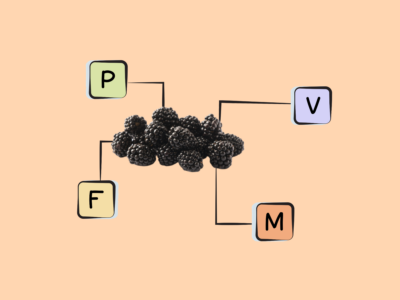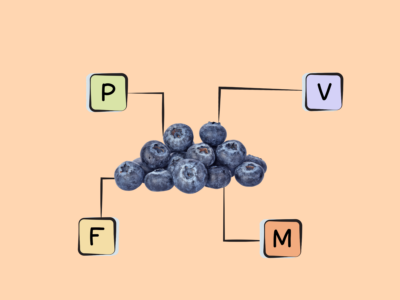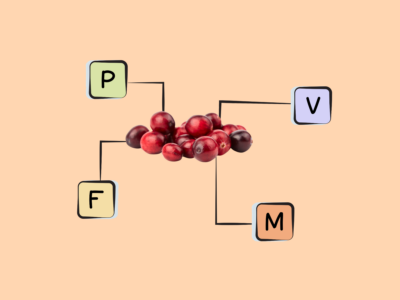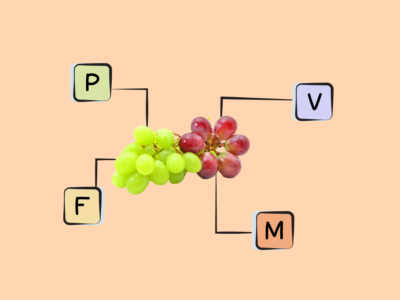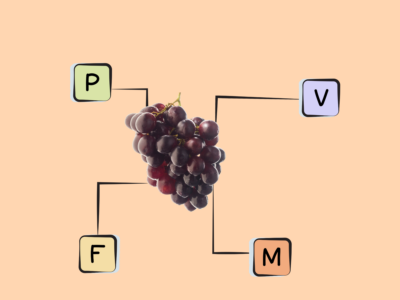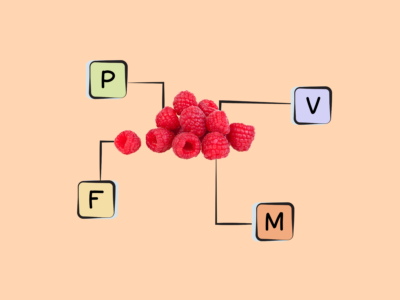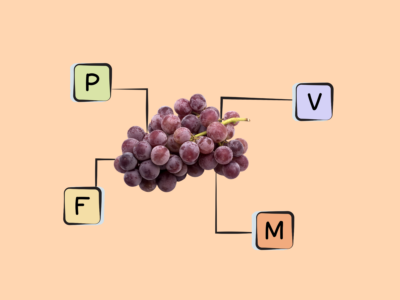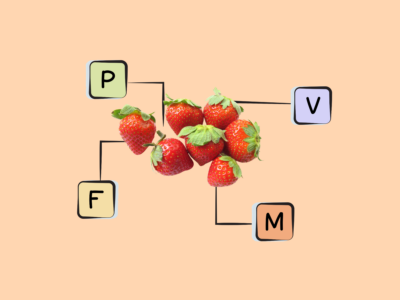Table of Contents[Hide][Show]
Health Benefits of Berries
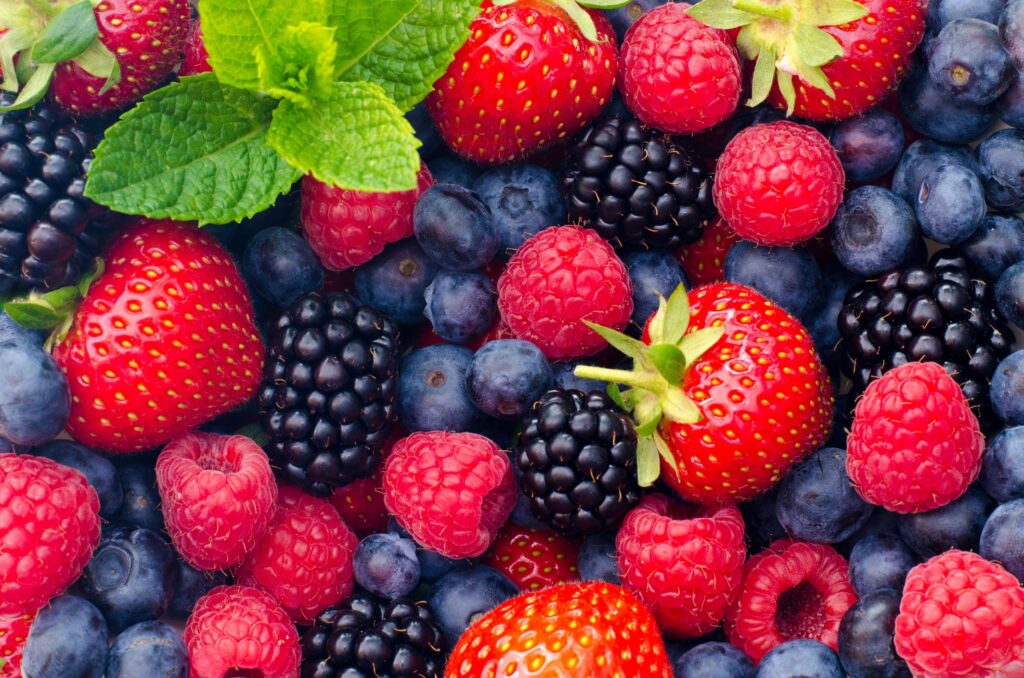
Berries are well known for their nutrient density, tend to be high in fiber, while also being relatively low in calories and containing a range of micronutrients. Even more impressive is the array of phytonutrients present in berries. Certain polyphenols (especially anthocyanins) and carotenoids are what give berries their unique colors. These fruits also contain phenolic acids, organic acids (such as citric acid, malic acid, oxalic acid, tartaric acid, and fumaric acid), flavonols, stilbenes, phytosterols (including sitosterol and stigmasterol), and tannins, which collectively contribute to their famous health benefits. And because berries are usually consumed fresh, their beneficial bioactive compounds generally remain intact and are not lost through cooking.
Abundant research has examined the benefits of berries and their compounds on human health! For example, 2017 systematic review, which included data from 95 studies, evaluated the dose response relationship between fruit and vegetable intake and health. The analysis showed that eating 100 grams of berries (about two-thirds of a cup) per day on average led to an 8% decrease in all-cause mortality, a general measure of health and longevity.
In both animals and humans, berries may help protect against a variety of cancers – including breast cancer, colon cancer, and esophageal cancer. Ellagic acid found in strawberries, raspberries, blackberries, and cranberries has been shown to exhibit antiviral and antioxidant activity, potentially protecting against lung cancer, colon cancer, and esophageal cancer. Gallic acid, also found in berries, inhibits cell proliferation in prostate cancer and has significant antioxidant activity (three times greater than vitamin E or C!). Extracts from several blackberry cultivars, black currants, red currants, black raspberries, and red raspberries have demonstrated high scavenging activity towards chemically generated superoxide radicals—free radical scavengers are super important because they remove oxidants (a.k.a. reactive oxygen species or free radicals) before they can damage vital components of a cell.
In fact, the bioactive components in berries have been shown to exert anti-cancer effects through a variety of mechanisms, including:
- inducing metabolizing enzymes,
- modulating gene expression,
- repairing DNA oxidative damage,
- modulating nuclear receptors,
- affecting cell proliferation,
- inducing apoptosis, and
- modulating subcellular signaling pathways.
A 2018 systematic review and meta-analysis showed a beneficial effect from the consumption of berries on the control of cardiovascular disease risk factors. Intake of berries was shown to reduce total cholesterol, LDL “bad” cholesterol, triglycerides and blood pressure, while increasing the level of HDL “good” cholesterol.
A 2002 Finnish study evaluating flavonoid intake and risk of chronic diseases, evaluating 10,054 men and women, showed a 26% decreased risk for type 2 diabetes with consumption of berries (when comparing top and bottom quartiles, i.e., those who ate the most berries versus those who ate the least).
A pooled analysis of two American cohort studies, examining 129,617 health professionals, showed a 23% decrease in risk for Parkinson’s Disease with berry consumption (highest quintile compared to lowest). A similar effect was seen with consumption of anthocyanins (24% decrease). Yes, berries are absolute rock stars when it comes to our health.
The 3 Simplest Ways to Eat a Healthy Diet
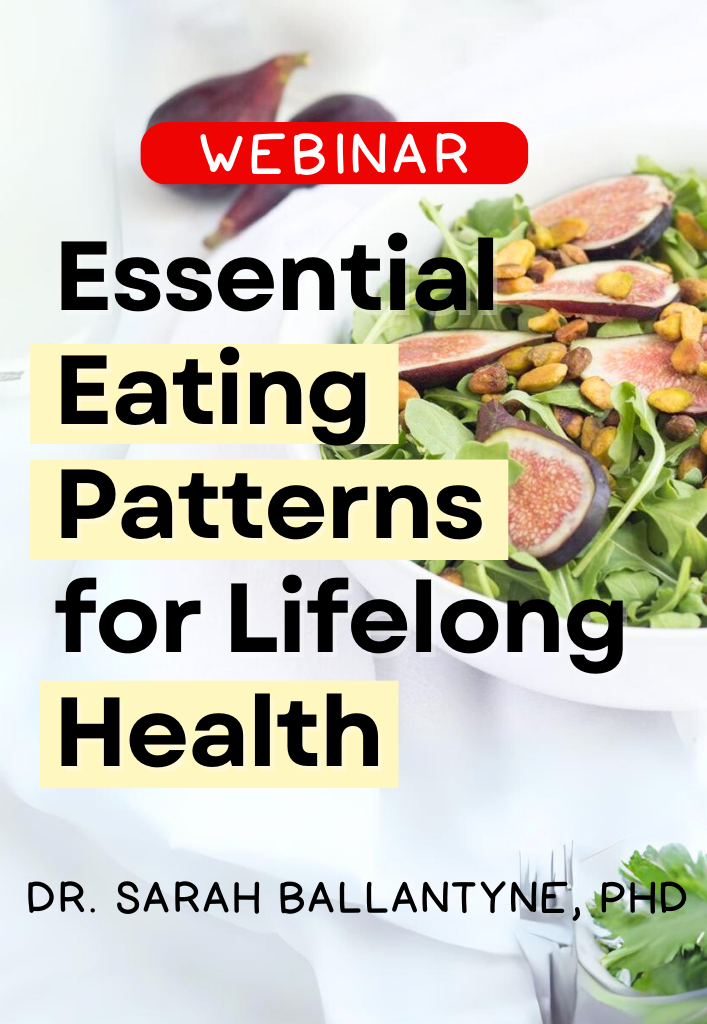
Essential Eating Patterns for Lifelong Health
Learn the three science-backed eating patterns that support lifelong health, regardless of what diet you follow.
In this webinar, Dr. Sarah guides you to adopt these impactful eating patterns, embrace a permissive dietary structure, incorporate quality-of-life foods, and make small changes that collectively add up to make a substantial difference in your overall health.
Buy now for instant digital access.
Examples of Berries
- açaí
- blackberry
- blueberry
- cloudberry
- cranberry
- currant
- elderberry
- goji
- gooseberry
- huckleberry
- lingonberry
- loganberry
- mulberry
- muscadine
- Oregon grape
- raspberry
- salmonberry
- strawberry
Nutrients in Berries
Easily track your servings of Nutrivore Foundational Foods!
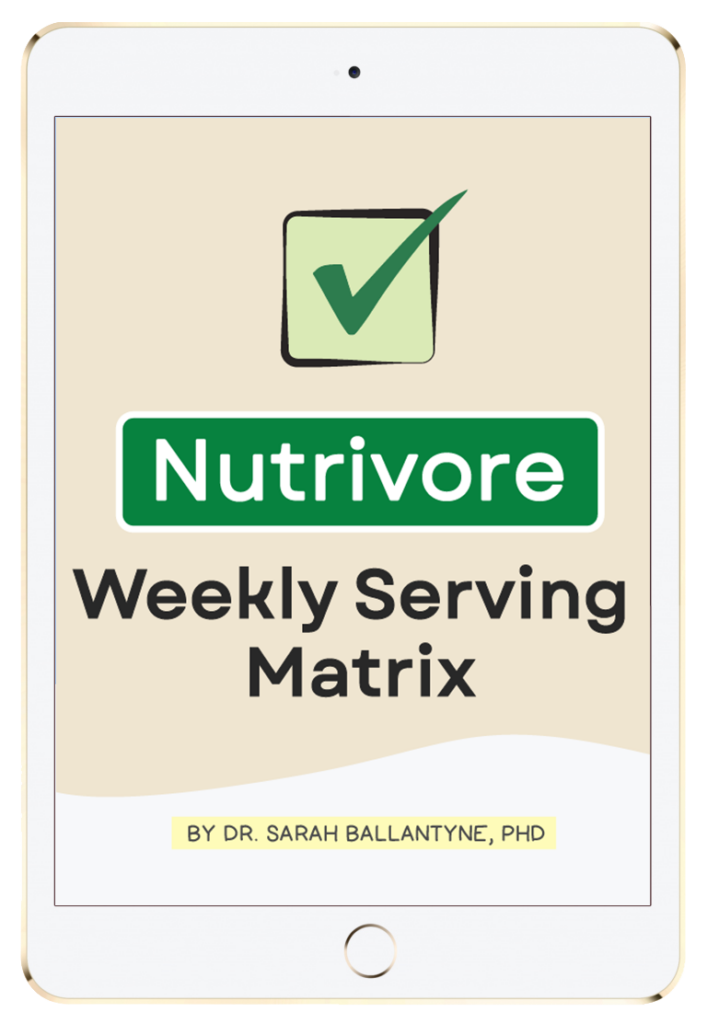
The Nutrivore Weekly Serving Matrix
The Nutrivore Weekly Serving Matrix digital resource is an easy-to-use and flexible weekly checklist designed to help you maximize nutrient-density and meet serving suggestions of Nutrivore foundational foods, all without having to weigh or measure your foods!
Includes a 22-page instructional guide and downloadable interactive guides.
Buy now for instant digital access.
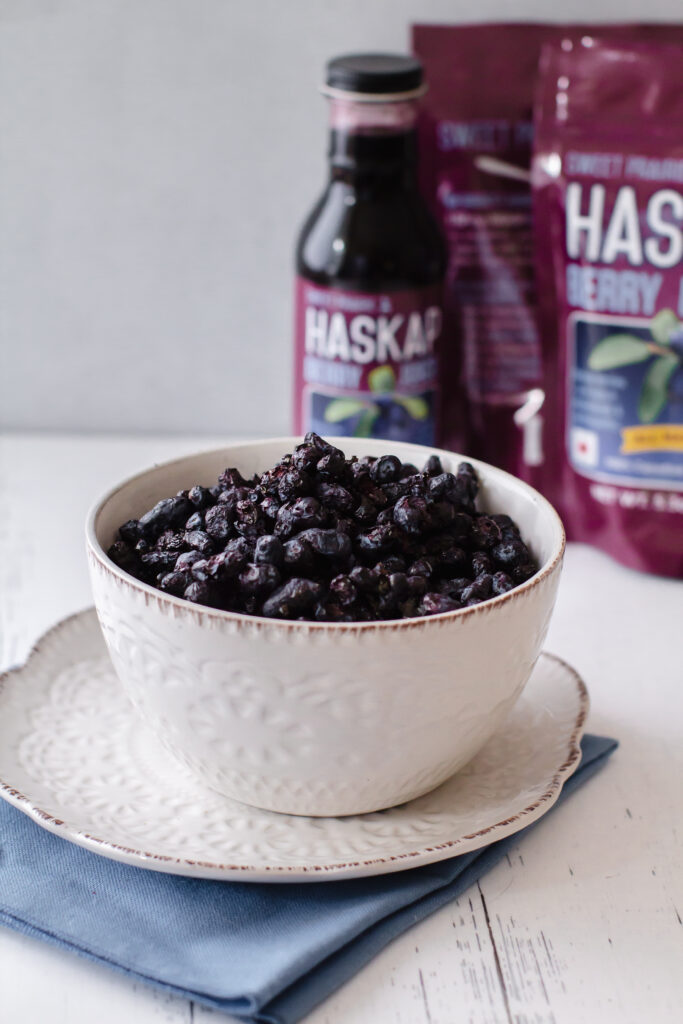
Have You Tried Haskap Berries?
- Haskap berry juice and powder
- 6X more anthocyanins than blueberries
- No additives, gluten-free, non-GMO and Vegan
- Add to sparkling water, smoothies, desserts, dressings and sauces
Help me to keep building Nutrivore.com
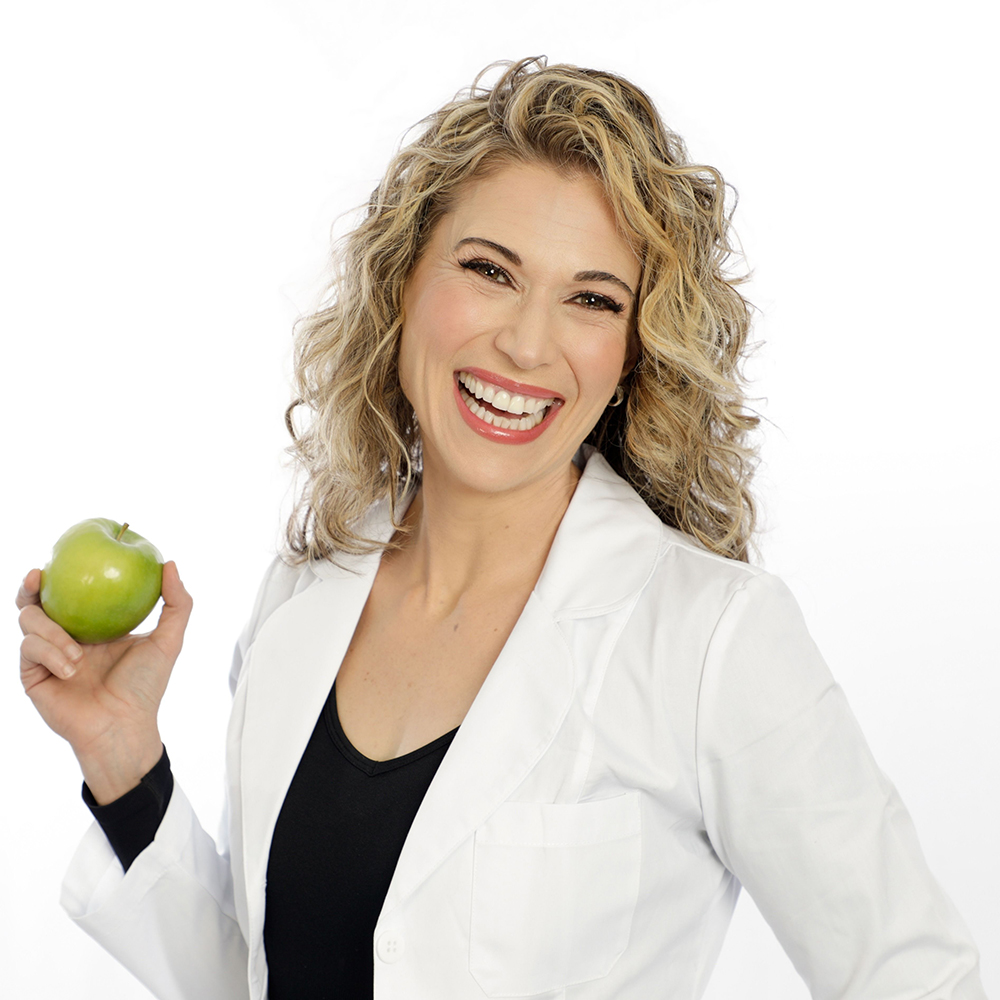
I’m working on writing more awesome articles on this topic to be featured right here on this webpage. If you’re enjoying the content my team and I have created thus far and would like to see more, you can support our efforts to keep building out this site by joining the Nutrivore community on Patreon!
Plus every month, you’ll gain exclusive and early access to a variety of resources, including a weekly video podcast, a new e-book in a series, nutrient fun factsheet, and more! Sign up now and also get 5 free Nutrivore guides as a welcome gift! Win-win-win!
Citations
Expand to see all scientific references for this article.
Casto BC, et al. “Chemoprevention of oral cancer by lyophilized strawberries.” Anticancer Res. 2013 Nov;33(11):4757-66.
Edirisinghe I, et al. “Strawberry anthocyanin and its association with postprandial inflammation and insulin.” Br J Nutr. 2011 Sep;106(6):913-22. doi: 10.1017/S0007114511001176. Epub 2011 May 16.
Hu T-G, et al. “Protective effect of mulberry (Morus atropurpurea) fruit against diphenoxylate-induced constipation in mice through the modulation of gut microbiota.” Food Funct. 2019 Mar 20;10(3):1513-1528. doi: 10.1039/c9fo00132h.
Jenkins DJA, et al. “The effect of strawberries in a cholesterol-lowering dietary portfolio.” Metabolism. 2008 Dec;57(12):1636-44. doi: 10.1016/j.metabol.2008.07.018.
Kang Y, et al. “Goji Berry Modulates Gut Microbiota and Alleviates Colitis in IL-10-Deficient Mice.” Mol Nutr Food Res. 2018 Nov;62(22):e1800535. doi: 10.1002/mnfr.201800535. Epub 2018 Oct 7.
Lee S, et al. “Blueberry Supplementation Influences the Gut Microbiota, Inflammation, and Insulin Resistance in High-Fat-Diet-Fed Rats.” J Nutr. 2018 Feb 1;148(2):209-219. doi: 10.1093/jn/nxx027.
Mentor-Marcel RA, et al. “Plasma cytokines as potential response indicators to dietary freeze-dried black raspberries in colorectal cancer patients.” Nutr Cancer. 2012 Aug;64(6):820-5. doi: 10.1080/01635581.2012.697597. Epub 2012 Jul 24.
Molan AL, et al. “In vitro and in vivo evaluation of the prebiotic activity of water-soluble blueberry extracts.” World Journal of Microbiology and Biotechnology. 2009;25:1243-49.
Nile SH & Park SW. “Edible berries: bioactive components and their effect on human health.” Nutrition. 2014 Feb;30(2):134-44. doi: 10.1016/j.nut.2013.04.007. Epub 2013 Sep 4.
Puupponen-Pimiä R, et al. “Berry phenolics selectively inhibit the growth of intestinal pathogens.” J Appl Microbiol. 2005;98(4):991-1000. doi: 10.1111/j.1365-2672.2005.02547.x.
Skrovankova S, et al. “Bioactive Compounds and Antioxidant Activity in Different Types of Berries.” Int J Mol Sci. 2015 Oct 16;16(10):24673-706. doi: 10.3390/ijms161024673.
Stull AJ, et al. “Bioactives in Blueberries Improve Insulin Sensitivity in Obese, Insulin-Resistant Men and Women.” J Nutr. 2010 Oct; 140(10): 1764–1768.
Stull AJ, et al. “Blueberries improve endothelial function, but not blood pressure, in adults with metabolic syndrome: a randomized, double-blind, placebo-controlled clinical trial.” Nutrients. 2015 May 27;7(6):4107-23. doi: 10.3390/nu7064107.
Subash S, et al. “Neuroprotective effects of berry fruits on neurodegenerative diseases.” Neural Regen Res. 2014 Aug 15;9(16):1557-66. doi: 10.4103/1673-5374.139483.
Törrönen R, et al. “Berries modify the postprandial plasma glucose response to sucrose in healthy subjects.” Br J Nutr. 2010 Apr;103(8):1094-7. doi: 10.1017/S0007114509992868. Epub 2009 Nov 24.
Törrönen, et al. “Berries reduce postprandial insulin responses to wheat and rye breads in healthy women.” J Nutr. 2013 Apr;143(4):430-6.: 10.3945/jn.112.169771. Epub 2013 Jan 30.
Wankhade UD, et al. “Sex-Specific Changes in Gut Microbiome Composition following Blueberry Consumption in C57BL/6J Mice.” Nutrients. 2019 Feb 1;11(2):313. doi: 10.3390/nu11020313.



